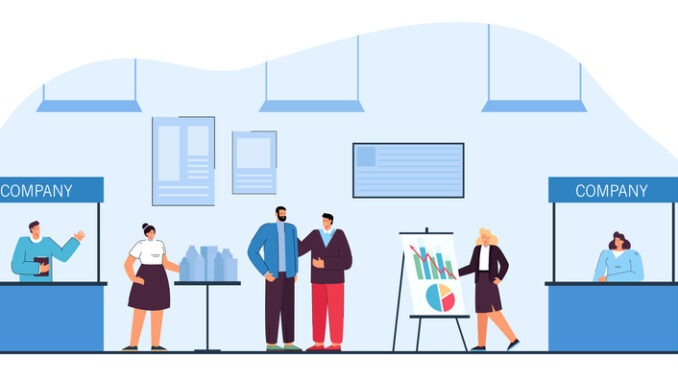
Andrew Blench, school business management consultant and coach, takes us through the steps you should take when deciding whether to attend a conference or not
With so many conferences happening across the education landscape there are lots of opportunities for networking and CPD. There are also lots of pressures which keep us in the office and make taking time out to attend events difficult. How do we decided which events to attend and, if we do go, how do we ensure we get the maximum benefit out of the time we have invested?
The conference – should I stay, or should I go?!
There are lots of options out there for SBPs in terms of conferences to attend. They all present great opportunities for CPD, networking and purchasing of goods and services. I am thinking of events such as – EdExec LIVE, the School and Academies Show, ISBL Regional and National Annual Conference, ASCL School Business Leaders Conference and BETT Show, to name but a few.
However, for the busy SBP the decision to attend even one of these events is not a simple thing. Can we justify the time out of the office plus travel time (or time online)? What will happen whilst we are out of school, and what problems might we have to sort out when we get back? These are questions that we all will grapple with and they are all legitimate concerns but, in my experience, too often we see ourselves sacrificing our own CPD for the greater good, whilst we see other colleagues attending every event possible!
What’s the answer then?
Be intentional about conferences. What do I mean by that? Look at the year ahead and pencil the dates of all the conferences that you think might be useful to you in your diary. You don’t have to make a decision right now to book a place, but at least if you have the dates in your diary, and you are asked to do something specific on that date, you can make an informed decision.
Maximise the benefit of attendance. Once you have made the decision to attend a conference plan what you are going to whilst you are there. I know that might sound like stating the blooming obvious but, far too often, I have attended conferences without a plan of which seminars I will attend and who I need to see. If there are optional session choices over the day, chose carefully. I know this can be difficult as often the description of the session doesn’t always match what is delivered. Look for sessions which address your own areas for development or issues that you or school are facing at the moment. Here is a tip (but don’t tell the conference organiser this!) You don’t have to fill your day with seminars. Why not leave some time in the day free for networking or just gathering your thoughts and/or writing notes.
Exhibitors
Most conferences have an exhibition area where suppliers spread the message about their goods and services. The list of suppliers is usually available in advance so scan the list and ask yourself if there is anyone you would particularly want to talk to. Some offer the ability to book an appointment to see them whilst you are there. Sadly, some delegates avoid this area of the conference altogether. I think that can be a mistake from all sorts of angles; this is what makes the conference financially viable. The exhibitors have paid for the option to be there and often this subsides the ticket price that you have paid. If we don’t visit them this could, eventually, undermine the conference as a whole. Also whilst speaking to exhibitors, on occasions, I have picked up tips and ideas to help me back at school, without necessarily having to buy anything.
Networking
I am amazed at how ‘cliquey’ we can be when attending events. If we have gone there with colleagues, we tend to sit together and not engage with other delegates. Now, I understand why we might do that – this could be the first opportunity we have had in a long time in the busyness of school to talk to each other properly. I set myself a goal at conferences of speaking to at least three people I have never met before and, if appropriate, sharing contact details. Our profession can be quite isolating and it’s good to be able to share good practice and encourage each other in that way.
If the organiser gives you a delegate list, have a look to see if there is anyone on the list who is located near to your school who, perhaps, you haven’t had contact with before. Also let people know beforehand that you are attending the event. I usually do this through LinkedIn; it flags up that other colleagues are also attending, and we can arrange to meet up during the day.
Travel by public transport
The travel time is all part of the experience and, hopefully, it’s not a bad one. If you have the option to not drive there and back this can be really useful time. The danger is that we attend an event and gather lots of useful information and contacts which then get dumped on the pile called ‘read later’ in the corner of the office; then, as soon as we get back, we get caught up in the whirl of school life and never pick this up again. Use the travel time on the way home to make notes, establish links via email/social media and start to action some of the ideas generated. I know the natural inclination might be to catch some much needed ‘zzzs’ on the train journey home but, if we don’t use this time, when will we follow up on what we have gained from the day?
Lastly, you don’t need to feel guilty for putting your CPD needs first. It’s not self-indulgent, it’s an investment in you and the future of your school when done intentionally.



Be the first to comment